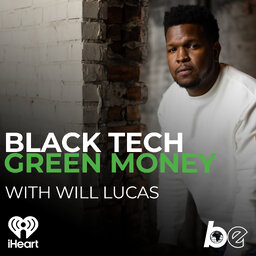BEST OF 2024: Memorable Money Moments #1
As 2024 draws to a close, we look back on some of the memorable moments from the last year of Black Tech Green Money!
This week's compilation features wisdom from Lanny Smith, Nicky Saunders, and John Hope Bryant.
In 1 playlist(s)
Black Tech Green Money
Black Tech Green Money presents the stories of successful Black entrepreneurs and technologists, as …Social links
Follow podcast
Recent clips

How To Turn Your Small Business Into an Ecosystem - This Is Where the Real Money Is
32:58

Omi Bell of Black Girl Ventures on Structural Barriers to Scaling Companies with Under $1MM in Revenue
36:40

Morgan DeBaun, AfroTech Founder talks HealthStack
41:25
 Black Tech Green Money
Black Tech Green Money